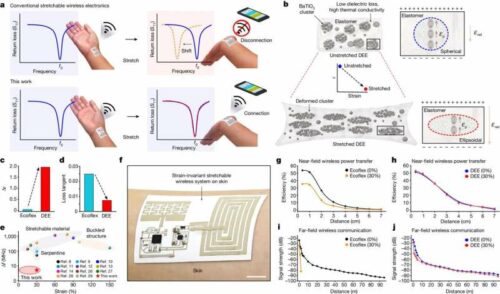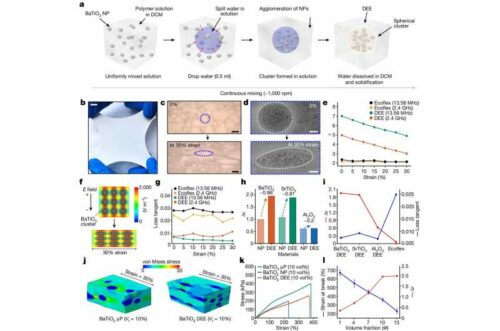Designing highly efficient stretchable electronics is critical for stable wireless connectivity as wearables evolve and influence technology, particularly in medical technology.

A new material that moves like skin while preserving signal strength in electronics could enable next-generation wearable devices with continuous, consistent wireless, and battery-free functionality.The team of researchers from Rice University and Hanyang University developed the material. They embedded clusters of highly dielectric ceramic nanoparticles into an elastic polymer. The material was reverse-engineered to mimic skin elasticity and motion types while adjusting its dielectric properties to counter the disruptive effects of motion on electronics, minimizing energy loss and dissipating heat.

The team combined simulations and experiments to design a material that can deform like skin and stabilize radio-frequency communication. Avila, responsible for conducting simulations, emphasized the importance of ensuring communication frequencies remain stable to avoid signal disruption. The embedded nanoparticles counteract disruptions, with the distance between the particles and the shape of their clusters playing a critical role in stabilizing electrical properties and the resonant frequency of RF components. Sun Hong Kim, a former research associate from Hanyang, noted that the research focused on designing a high-dielectric nanocomposite for the substrate, highlighting the importance of collaboration across different fields. They stated that the technology could be applied to wearable medical devices, soft robotics, and high-performance antennas. Wearable technologies significantly impact health care, enabling new forms of monitoring, diagnosis, and care.
The researchers built several stretchable wireless devices, including an antenna, a coil, and a transmission line, to test the material’s effectiveness. They evaluated their performance on the developed substrate and a standard elastomer without added ceramic nanoparticles. The results showed that the resonant frequency of the system remained stable under strain, supporting wireless communication at a distance of up to 30 meters. The new material could enhance wireless connectivity performance in various wearable platforms designed for different body parts. The researchers developed wearable bionic bands to monitor health data, including EEG and EMG activity, knee motion, and body temperature. The headband transmitted real-time EEG measurements at a wireless distance of 30 meters.





